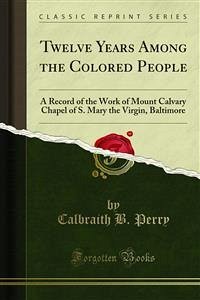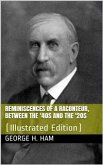Excerpt from Book:
There are so few histories of colored people, so few records of their brave and honorable deeds in history, that I feel constrained to record a few facts relative to these people. It is only a cursory glance I can give—I could easily enlarge the sketch to twice this size.
We are proud when we read in Nell’s “Colored Patriots of the Revolution” that Oliver Cromwell enlisted in a company commanded by Capt. Lowrey, attached to the Second New Jersey Regiment, under command of Col. Israel Shreve. He was at the Battles of Trenton, Princeton, Brandywine, Monmouth and Yorktown. He was with the army at the retreat of the Delaware on the memorable crossing of December, 1776, and relates the story of the battles of the succeeding days with enthusiasm. He gives the details of the march from Trenton to Princeton, and told with much humor “that they knocked the British about lively at Princeton.” His discharge (says Dr. McCune Smith) at the end of the war, was in Washington’s own handwriting. He was very proud of it and often spoke of it. He received an annual pension of $96 until his death, January 24th, 1853, aged 100 years. Had he been white, every newspaper in the land would have been eloquent in his praise.
There are so few histories of colored people, so few records of their brave and honorable deeds in history, that I feel constrained to record a few facts relative to these people. It is only a cursory glance I can give—I could easily enlarge the sketch to twice this size.
We are proud when we read in Nell’s “Colored Patriots of the Revolution” that Oliver Cromwell enlisted in a company commanded by Capt. Lowrey, attached to the Second New Jersey Regiment, under command of Col. Israel Shreve. He was at the Battles of Trenton, Princeton, Brandywine, Monmouth and Yorktown. He was with the army at the retreat of the Delaware on the memorable crossing of December, 1776, and relates the story of the battles of the succeeding days with enthusiasm. He gives the details of the march from Trenton to Princeton, and told with much humor “that they knocked the British about lively at Princeton.” His discharge (says Dr. McCune Smith) at the end of the war, was in Washington’s own handwriting. He was very proud of it and often spoke of it. He received an annual pension of $96 until his death, January 24th, 1853, aged 100 years. Had he been white, every newspaper in the land would have been eloquent in his praise.









